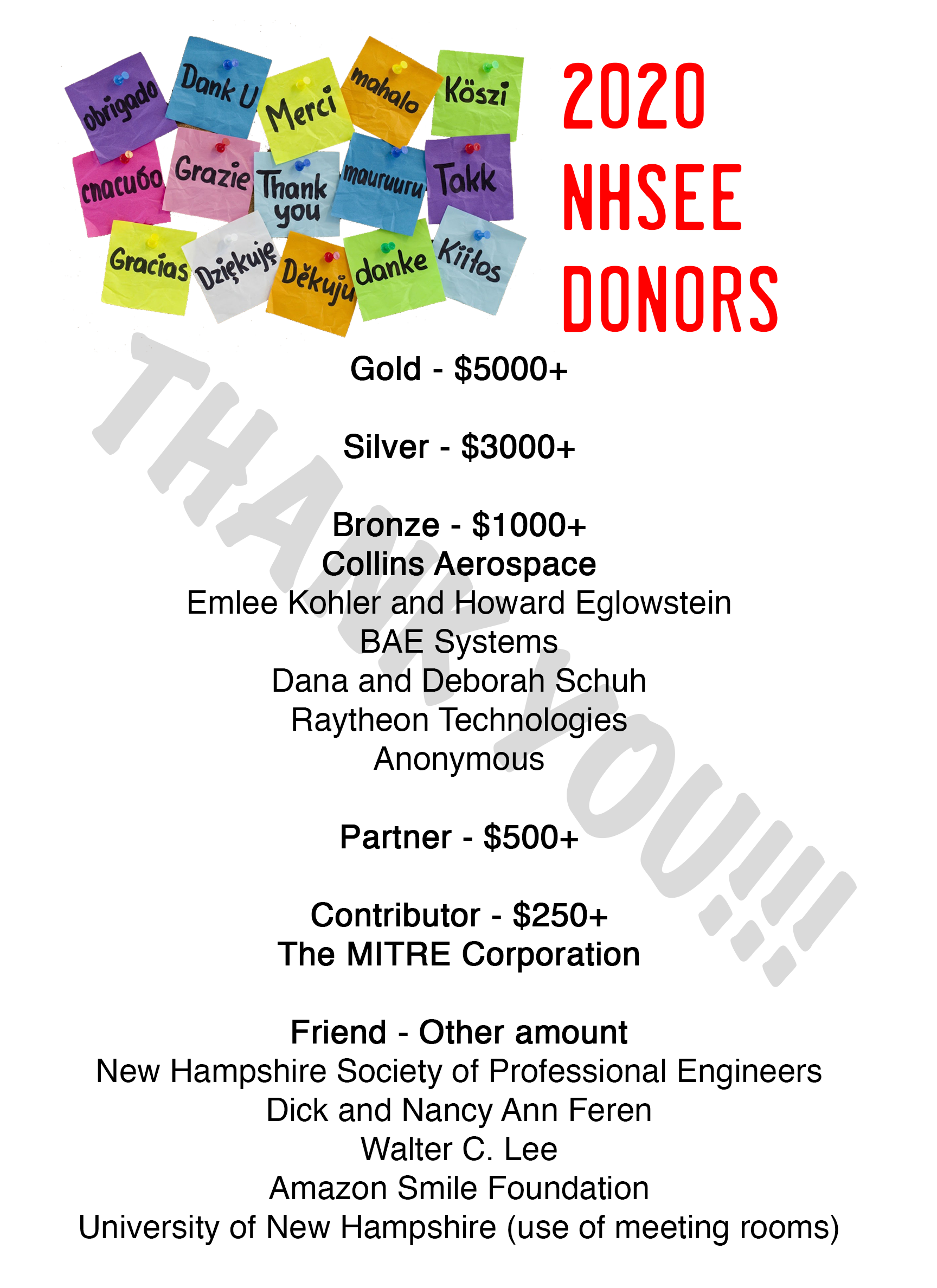Open Categories
The categories and descriptions for the Open Competition are used with permission of the Massachusetts State Science and Engineering Fair
Behavioral Science: Concerned with observable, tangible, and measurable data regarding behavior activities. Other topics in this category are psychology, educational testing, animal behavior, learning and archaeology.
Biochemistry: The study of chemical substances occurring in living organisms and the reactions and methods for identifying these substances. Other topics in this category are molecular biology, molecular genetics, enzymes, photosynthesis, blood chemistry, protein chemistry and hormones.
Biology: The science of life, including the study of the development, structure, and behavior of living organisms. Other topics in this category are botany, zoology, plant science, hydroponics, medicine, dentistry, pharmacology, nutrition, dermatology, veterinary medicine, microbiology, genetics, physiology, anatomy and invertebrate biology.
Chemistry: A science that treats the composition of substances, their structure, their behavior, reactions, analysis and synthesis. Other topics in this category include physical organic, inorganic, materials, plastics, fuels, pesticides, metallurgy, and soil chemistry.
Computers: A study of computer construction, programming, languages, techniques and general operations.
Computational and Informatics Science (COIS): The development and application of data-analytical and theoretical methods, mathematical modeling and computational simulation techniques to the study of biological, medical, environmental, behavioral, social, and other scientific systems.
Earth & Space Science: Earth Science is the study of weather, climate, local rock formations, mineral resources, soils, natural vegetation, and animal life. Other topics in this category are geology, geophysics, physical oceanography, meteorology, seismology, mineralogy and topography. Astronomy/Space Science is the science regarding the celestial bodies and the observation and interpretation of the radiation received in the vicinity of the earth from the component parts of the universe. Other topics in this category include optical astronomy, radio astronomy, astrophysics, astrometry and astrophotography.
Engineering: Applied science concerned with utilizing products of earth, properties of matter, sources of power in nature, and physical forces for supplying human needs in the form of structures, machines, manufactured products, precision instruments, the means of lighting, heating, refrigeration, communication, transportation, sanitation, public safety and other productive work. Other categories are civil, mechanical, aeronautical, chemical, electrical, photographic, sound, automotive, marine, materials, ocean, biomedical, geothermal and solar.
Environmental Science: The study of pollution sources (air, water and land) and the effects of pollution on the environment, the study of ecology, the relationships of organisms and their environments.
Mathematics: That science which treats the exact relationships existing between quantities or magnitudes and operations, and of the methods by which, in accordance with these relations, quantities sought are deductible from others known or supposed. Topics may include calculus, geometry, abstract algebra, number theory, statistics, complex analysis and probability.
Physics & Electronics: Physics is a natural science covering matter, energy, and their mutual relations that do not involve change in composition. Topics covered by physics are solid-state theory, optics, acoustics, particle, nuclear, atomic, plasma, thermodynamics, semi-conductors, magnetism, quantum mechanics, biophysics and mechanics. Electronics is the study, control and application of the conduction of electricity through gases or a vacuum or through conducting or semi-conducting materials. Other topics in this category include electronic phenomena, devices and systems.
Challenge Competitions
Balsa Bridges
You are to design and construct a bridge made out of only balsa wood and glue, with the goal to be the most efficient bridge. Efficiency is defined as the maximum weight held divided by the weight of the bridge. The bridge must meet very specific weight and dimensional requirements to qualify for the competition. Click here for details.
Straw Towers
You are to design and construct a tower that is a minimum height and that can support the maximum load possible. Your performance assessment score will be based on how much load it holds (before collapse) and its height. Materials are limited. Click here for details.
Hill-Climbing Car
The objective is to build a hill-climbing car powered by the spring of a single mouse trap (NOT a rat-trap.). The car is to start from rest, climb at least a 20 degree (20°) slope, and be able to do so repeatedly. Click here for details.
Journal of Young Explorers Meta (JYEM) competition
The Journal of Young Explorers Meta (JYEM) competition is a research competition that will be of interest to high school faculty and students. The competition is managed by alumni of Harvard, Yale, Massachusetts Institute of Technology (MIT), Cornell, and other leaders in the field of academic research. Winners of the competition will receive category awards, special awards, and eGift cards.
Past student contributors to the JYEM competition have demonstrated excellence in their research in other settings as well, such as regional JSHS and the Regeneron Science and Engineering Fair-STS/ISEF.
We appreciate the support of faculty and school administrators in helping to disseminate information about the JYEM competition to their students. We welcome submissions directly from students or from school administrators who would prefer to compile submissions on behalf of the student body. Please note that there is no limit on how many submissions can be made from each institution.
All the submissions should be done on the submission portal(www.jyem.org) or by email and include a research paper, application form, and other optional relevant materials. The required documents are attached below.
The submission schedules and award information are as follows:
2023 Schedule Summary- Submissions open: October 1, 2022
- Submissions close: July 5, 2023
- Judging: Papers will be reviewed on a rolling basis
- Finalists are announced: July 20, 2023 (Announcement will be posted on the website: please check the footer section on the front page.)
- Submission materials: Research paper, application form, and optional/supplemental materials
- Please check General Information on the website (https://jyem.org/schedule.php)
Award Information
- Grand prize, category awards, and special awards
- Monetary Awards – Grand Prize winner and other selected winners will receive cash awards and/or Amazon.com eGift Cards.
Get the Application form by clicking here (right click to save PDF)
This is a template for the research paper (right click to save PDF)
 Questions? Try the JYEM Contact page and send them a message.
Questions? Try the JYEM Contact page and send them a message.




